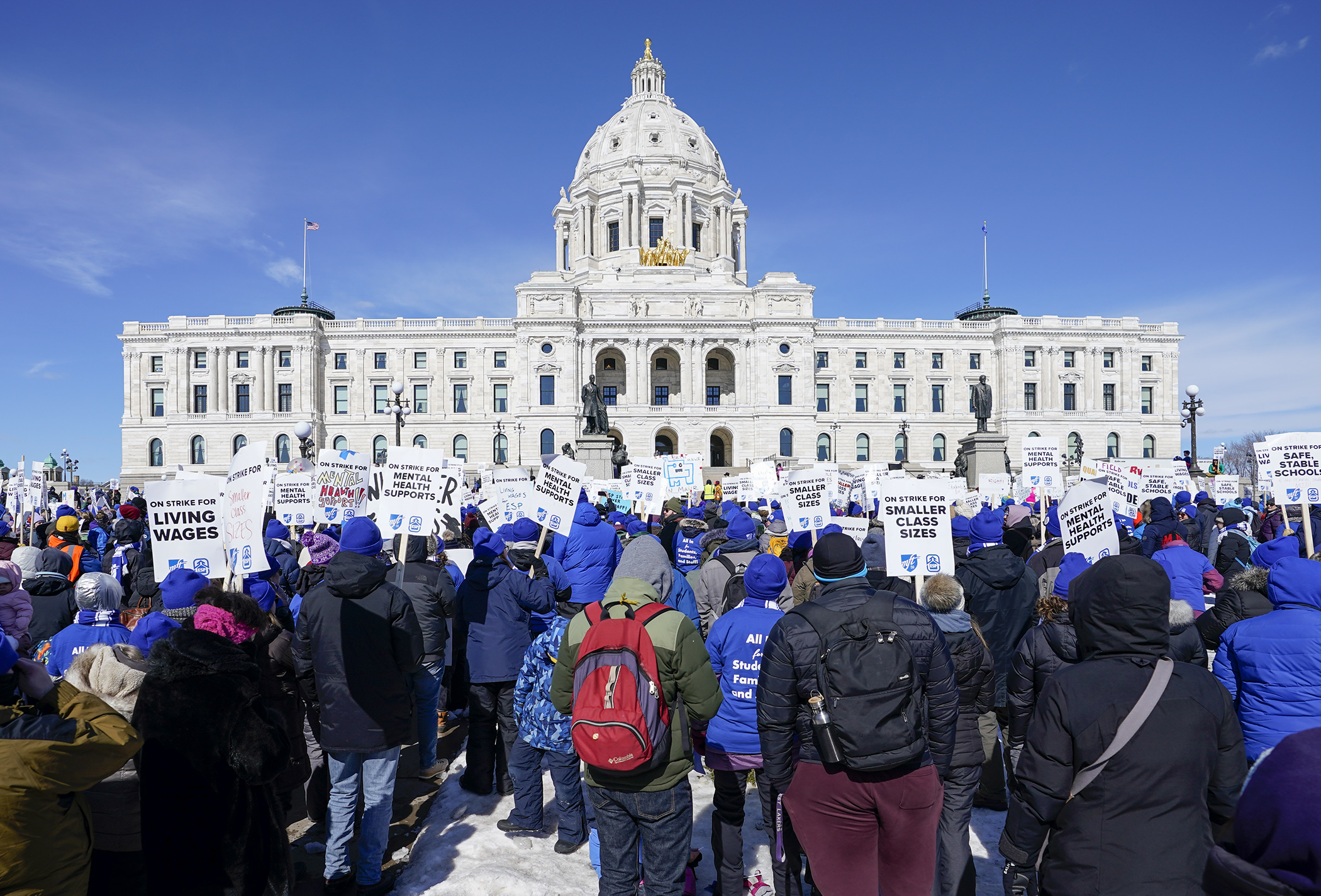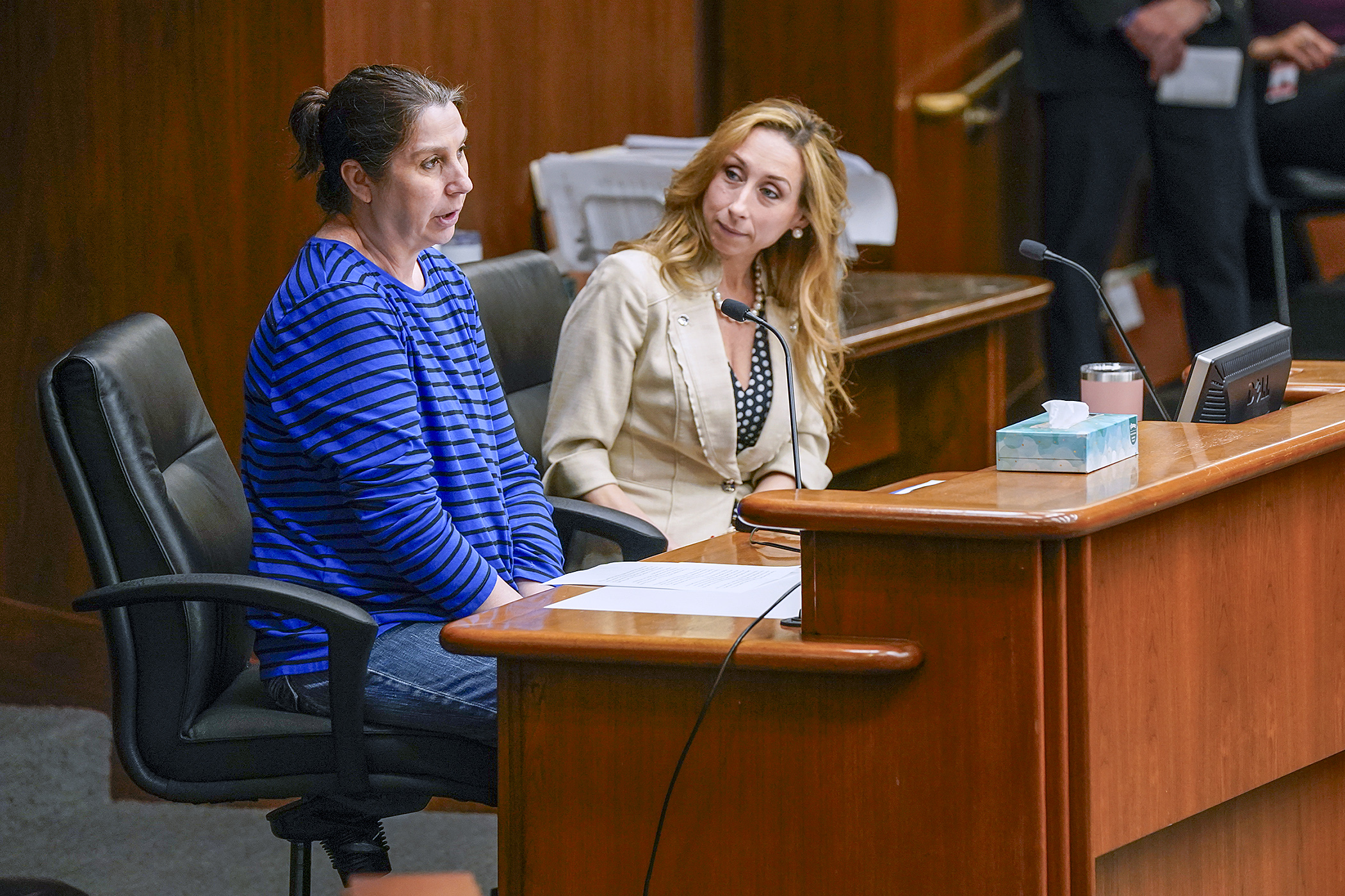Workforce panel approves bill extending unemployment insurance to striking workers

Even if a union has a good fund to help members pay their bills if they go on strike, workers still must prepare for less income while they are off the job.
Rep. Kaela Berg (DFL-Burnsville) wants the state to potentially help.
Under current law, workers who leave employment by participating in a strike or labor dispute are presumed ineligible for unemployment benefits for the duration of the strike or dispute.
Berg sponsors HF3446, which, as amended, would remove that presumption and make striking workers eligible for unemployment benefits from the time the labor dispute began, provided they otherwise meet unemployment eligibility requirements.
“This is about workers being able to fight for what they deserve,” Berg said.
The House Workforce Development Finance and Policy Committee approved the bill on a split-voice vote Wednesday and sent it to the House Ways and Means Committee.
Berg and the nearly dozen current and former union members who testified emphasized that going on strike is a last resort. That’s because they believe management can almost always win a labor dispute by dragging out negotiations until striking workers begin having trouble paying their bills.
Berg illustrated this uneven power dynamic by citing a Hollywood studio executive who said their strategy to end the 2023 writer’s strike was “to allow things to drag on until union members start losing their apartments and losing their houses.”
“The decisions workers make when they collectively vote to go out on strike are never taken lightly,” said Bart Andersen, interim executive director of AFSCME Council 5. “It’s one that comes with enormous financial consideration and is a tactic of last resort.”
Going out on strike would still be difficult because unemployment insurance only pays 50% of a person’s normal wage. “But at least workers won’t be starved back to work,” Andersen said.
 Sarah Gallett, a Hastings School District food service worker, testifies March 13 in support of HF3446, sponsored by Rep. Kaela Berg, that would extend eligibility for unemployment benefits to workers during a labor dispute. (Photo by Michele Jokinen)
Sarah Gallett, a Hastings School District food service worker, testifies March 13 in support of HF3446, sponsored by Rep. Kaela Berg, that would extend eligibility for unemployment benefits to workers during a labor dispute. (Photo by Michele Jokinen)Jake Schwitzer, executive director of North Star Policy Action, gave details from a recent report his organization prepared dispelling the allegation that the bill would be too costly to the state.
The cost of the bill would amount to just 0.3% of total unemployment insurance disbursements in Minnesota, he said, adding that extending unemployment insurance to striking workers would result in fewer than 200 additional eligible workers each month.
No fiscal note was available for the bill, although Schwitzer said the funds would come from the Unemployment Insurance Trust Fund, not the General Fund.
Rep. Natalie Zeleznikar (R-Fredenberg Township) questioned the wisdom of adding to the state’s financial obligations when the latest state economic forecasts predict a return of budget deficits.
Related Articles
Search Session Daily
Advanced Search OptionsPriority Dailies
Speaker Emerita Melissa Hortman, husband killed in attack
By HPIS Staff House Speaker Emerita Melissa Hortman (DFL-Brooklyn Park) and her husband, Mark, were fatally shot in their home early Saturday morning.
Gov. Tim Walz announced the news dur...
House Speaker Emerita Melissa Hortman (DFL-Brooklyn Park) and her husband, Mark, were fatally shot in their home early Saturday morning.
Gov. Tim Walz announced the news dur...
Lawmakers deliver budget bills to governor's desk in one-day special session
By Mike Cook About that talk of needing all 21 hours left in a legislative day to complete a special session?
House members were more than up to the challenge Monday. Beginning at 10 a.m...
About that talk of needing all 21 hours left in a legislative day to complete a special session?
House members were more than up to the challenge Monday. Beginning at 10 a.m...